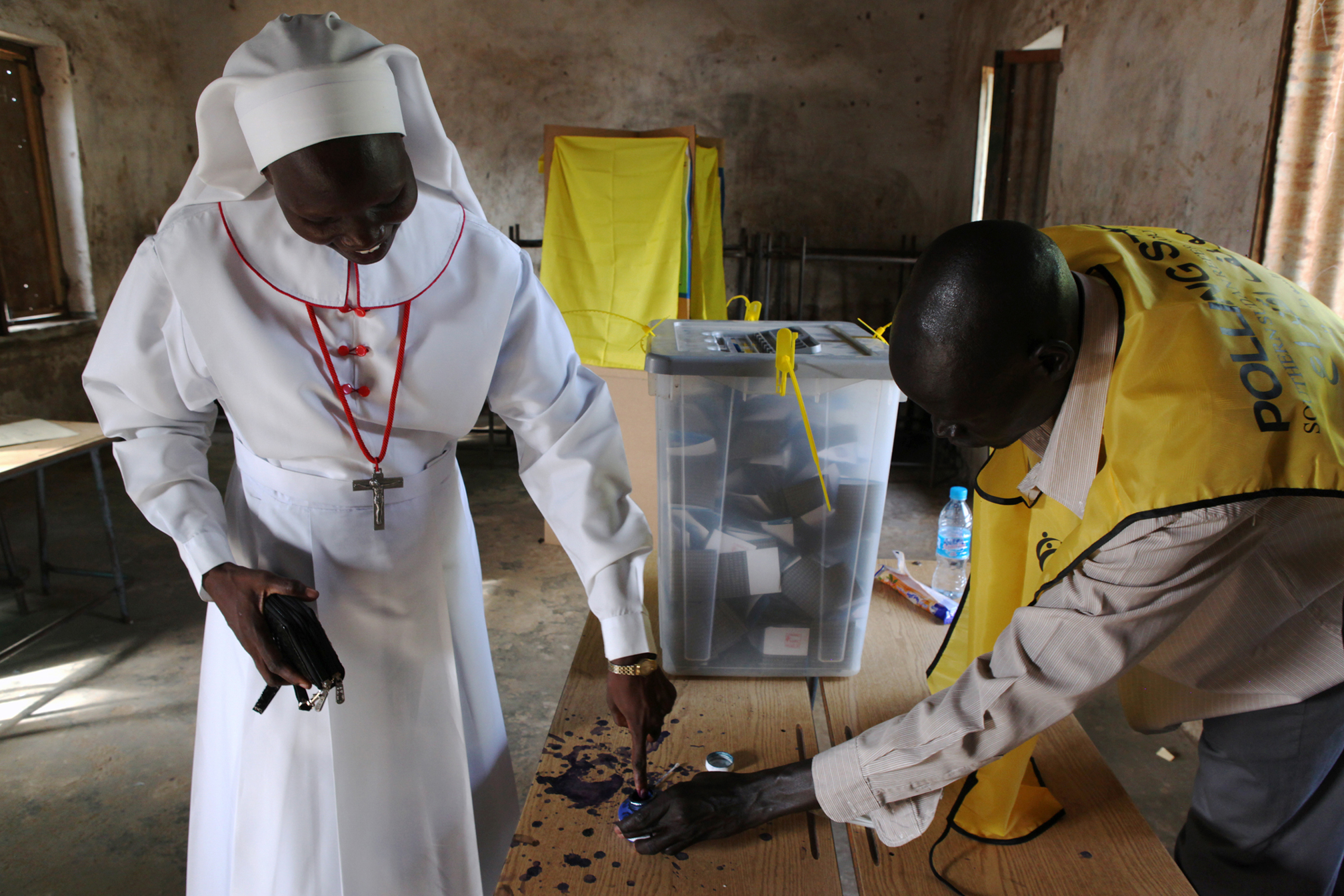
Political changes are afoot in Tunisia and Egypt. News organizations have been reporting non-stop for weeks and speculating about what happens next. The question is whether the civil upheaval that has brought down two long-standing strongman regimes will reverberate in other parts of the region. Experts predicted and have seen increased unrest in the Arab world: the North African Maghreb, the Near East and the Gulf States.
Yet other nations on the continent have faced substantive challenges to their central authority. Will the contagion of unrest spread from Arabic North Africa to other conflicted states sensitive to the surprising turn of events?
Despite the potentially destabilizing political and economic effect of events in Tunisia and Egypt, and the symbolic message they broadcast to nations across Africa, the likelihood that a wave of anti-authoritarian revolution moves across the continent is slim.
On-going debates over power and territory in Sudan, Nigeria and Cote d’Ivoire present possible routes for such a domino effect to take place. However, the sociological makeup and economic conditions of those countries are dissimilar to those of Egypt and Tunisia. Political developments will probably remain regional affairs unaffected by the upset of power along the Mediterranean.
On Jan. 9-15, Sudan held a referendum to seek the secession of the southern half of the country, with its provisional capital in Joba, from the Arabic Islamist north, commanded from the country’s current capital, Khartoum. On Jan. 14, voting results were released, indicating that a strong majority of Sudanese wanted to see the south secede.
Ongoing tensions threaten the proposed clean break in Sudan. The allocation of southern, oil rich lands, genocidal militia raids in Darfur, the internal and cross-border displacement of people and a heavily manipulated voting apparatus will work against the tentative creation of a new country.
In an email exchange, politics and government Assistant Professor Rachel DeMotts indicated that there is some concern on the part of Sudanese government officials that the contagion of revolutionary energy from Egypt and Tunisia could find its way to Sudan. This follows the detention of opposition leader Hassan al-Turabi, who has connections to Darfuri rebels battling the government.
A Jan. 18 BBC article reported that “Mr Turabi warned that an uprising as seen in Tunisia was ‘likely’ amid public anger over poverty, a lack of political reform, and fears over the likely secession of Southern Sudan.”
Yet Turabi’s incarceration stifles his ability to exploit the critical moment in Sudanese history, in which the control of President Omar al-Bashir is vulnerable. The demonstrators in Egypt, made up of middle class, university students, the families of victims of Mubarak’s security apparatus and the urban poor, were aided by labor union strikes that weakened the country’s powerful economy. Sudan lacks the same basis of demographic and economic sensitivies to bring Bashir’s regime to a halt.
“In terms of further destabilization,” writes Professor DeMotts, “I think it is unlikely that this would go beyond North Africa.”
“In my view,” DeMotts continues, “spread is usually facilitated by commonalities of some kind – similar complaints against the government/opposition movements, similar regimes, shared history, geography/proximity, common identity – and the more of these [that there are] in common, the more likely that changes in one country could impact another.”
Nigeria, a West African country made powerful by its vast oil reserves and an influx of infrastructure funding from China, has also experienced recent unrest. The Christmas season saw terrorist bombings in the capital city Lagos, and rallies preceding April’s heated presidential election have led to violence.
Referring to the geographic spread of political contagion, DeMotts writes, “It’s of course not quite that simple, but I think it’s highly unlikely that a new regime in Egypt will have any particular effect on Nigeria, for example.”
Yet the spread of revolutionary energy from North Africa has another poiny of entry. A cause for worry in the international community emanates from Cote d’Ivoire, where a stalemate has been reached over the fate of the country’s presidency.
Following elections in December, long-time political opposition leader Alassane Ouattara, who comes from the majority Muslim north of the country, won according to preliminary vote counts. However, the sitting president Laurence Gbagbo has refused to relinquish power.
Rioting and violence between the supporters of both men have caused street-level turmoil and wider consequences: according to the UN High Commission for Refugees, about 35,000 people have been displaced internally, and another 35,000 into neighboring Liberia.
Last week, in an African Union meeting in the Ivorian capital of Abidjan, Liberian Foreign Minister Togo McIntosh expressed worry over the possibility that events in Cote d’Ivoire, if not resolved soon, could lead to further destruction within the region.
Although there is the possibility that the tumultuous landscape of North Africa will affect the geo-political developments in East and West Africa, the Sudanese and Ivoirian opposition leaders are not in a position to exploit the weaknesses evident in Tunisia and Egypt.
The option of criticizing the sitting government, while appealing to civilian protesters who disrupt the day-to-day operations that give a strongman government its façade of power, is impossible in countries without the same traditions of dictatorial security and relative economic stability. In Tunisia and Egypt, social media like Facebook and Twitter have played a huge role in organizing demonstrations.
Access to these resources is minimal in Sudan and Cote d’Ivoire. Limited contact, due to geography or limited telecommunications, has quelled the kind of fervor behind the most recent civil upheaval in Arabic North Africa.
